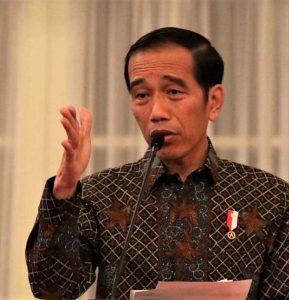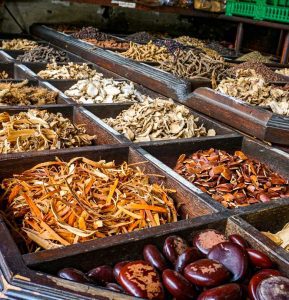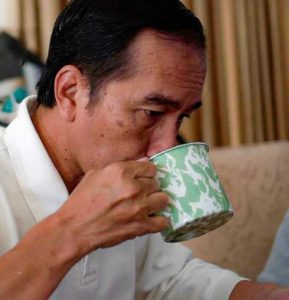Making Jamu the Downstream of the Indonesian Spice Industry
"In accordance with the direction of President Joko Widodo, now is the time for Indonesia to switch from being a raw material exporter to become a producer of finished materials with a higher selling value"Published by : Farida - 06/04/2022 13:47 WIB
3 Minutes read.
Jamu in Indonesia, which is the nation’s cultural wealth, has now grown into a large strategic industry and has high economic value. However, if it is developed more optimally, the jamu industry can become an added value for the Indonesian spice industry.

Source: www.klikdokter.com
This is in line with President Joko Widodo’s call for Indonesia to immediately leave the status of raw material exporting country. Now is the time for Indonesia to process raw materials into semi-finished or finished materials so that they have multiple added values.
In industrial terms, jamu and spices have a backward linkage relationship. The term means that a product requires another product in order to have a higher exchange value. Almost 99% of the raw materials for the jamu industry in Indonesia are taken from the spice agriculture sector which also exists in Indonesia. Of course, when jamu is sold, its prices will be higher than the price of spices, therefore it can be said that jamu is able to bring up multiple benefits for economic growth in Indonesia.

Most ordinary people probably already consider that the jamu industry in Indonesia is already big. The conclusion is drawn from the jamu industries that have grown large and have an international market. However, when compared with the export value of the spice industry, the Indonesian jamu industry is still far behind.
Based on export value data in 2020, the export value of spices in Indonesia reached US$218.96 million or around Rp. 3.1 trillion (based on the exchange rate at the time the article was written). Meanwhile, the export value of jamu only reached US$ 4.2 million or around Rp. 60.5 billion. Based on data from trademap.org, the export value of herbal medicine in Indonesia is only 2% when compared to the export of spices.
President’s Appeal
Indonesia is a country rich in natural products, both from mining to agriculture. Through this potential, President Joko Widodo appealed to Indonesia to immediately get out of dependence on exporting raw commodities.

Source: www.tokopedia.com
“…The glorious era of raw material commodities is over, and we must dare to change the economic structure that has been commodity-based to enter downstream!” said President Joko Widodo in his groundbreaking speech for the First Electric Battery Factory in Indonesia in Karawang, September 15, 2021.
The President explicitly ordered the relevant business actors to change the sales concept from only selling raw materials abroad to an absolute downstream process. Later in the future, those sold abroad are no longer raw spices, but their derivative products, one of which is in the form of jamu.
“It’s time for Indonesia to let go of its dependence on raw commodity exports and develop them into semi-finished and finished goods,” added President Joko Widodo.
Jamu deserves to be made a priority in efforts to downstream this industry. Jamu is a spice processing technique that aims to maintain health and to treat various diseases.
To achieve this goal requires understanding from various parties concerned. After that, it is also necessary to intensify research to produce empirical data related to the efficacy of jamu. Through the properties that have been scientifically proven, jamu will be more acceptable to the international community.








